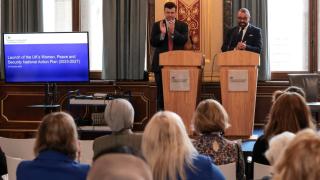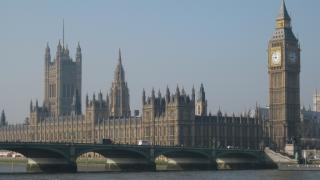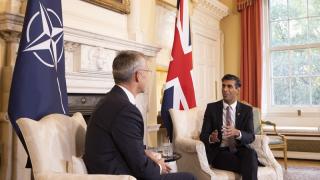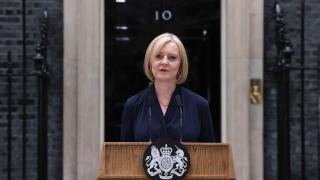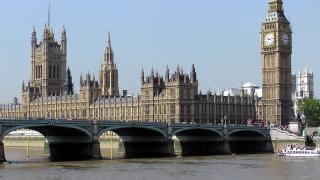
On Wednesday 24 November the United Nations All-Party Parliamentary Group (APPG) and the APPG for Disability co-hosted an online event marking 25 years of the Disability Discrimination Act (DDA).
Discussion addressed the UK’s upcoming national disability strategy, mainstream education and access for disabled students, upholding human rights amid the coronavirus pandemic, employment, and what needs to be done 25 years on from the DDA.
The meeting was chaired by Dr Lisa Cameron MP (Chair of the APPG for Disability and Vice-Chair of the UN APPG), who stressed the importance of the DDA in improving people’s lives. Speakers from both the Labour and Conservative parties were in attendance, including Vicky Foxcroft MP (Shadow Minister for Disabled People), Justin Tomlinson MP (Minister for Disabled People), as well as Rebecca Hilsenrath (CEO of the Equality and Human Rights Commission) and over 100 virtual attendees.
Lord Hannay, Co-Chair of the UN APPG, highlighted how reducing discrimination and problems faced by disabled people was a matter of both national and international importance. He highlighted the UK’s responsibility to fully support achieving the SDGs by 2030, particularly those aimed at ending discrimination against disabled people, and emphasised that sticking to our 0.7% aid commitment would be an essential part of that. Lord Hannay introduced Diane Kingston OBE, former UK member of the UN Committee on the Rights of Persons with Disabilities, who provided the group with an expert briefing and discussed the international approach to protecting and promoting disability rights.
Ms Kingston discussed the work of the OHCHR’s Committee on the Rights of Persons with Disabilities - as one of nine core human rights treaty bodies within the UN system, the committee works to scrutinise, monitor, and ensure the implementation of the UN Convention on the Rights of Persons with Disabilities (UNCRPD). Her address considered how the UK compares to other states parties to the convention, and what more the UK could do to assist in the promotion and protection of disability rights and inclusion. According to Ms Kingston, it is unacceptable that the UK has a reservation on clauses of article 24 of the UNCRPD, stating, “We will never have a mainstream society unless we have mainstream schools.”
Acknowledging the UK's obligations regarding the SDGs, Ms Kingston noted Britain put forward the core principle to “leave no-one behind”, and was the first country in the world to hold a global disability summit. She stressed the need for the UK to play a key role at the next disability summit, due to be held in Norway in 2022, and for it to raise disability inclusion as part of foreign policy discussions more broadly.
In her final remarks, Ms Kingston highlighted the UN’s recently developed disability inclusion strategy and called on the UK to support a resolution to sustainably fund the disability inclusion strategy, which is currently funded in an ad hoc manner, mainly by Australia. She concluded that the UK has done plenty and can still do more to support and expand disability inclusion.
Photo: Houses of Parliament. Credit: Adrian Pingstone

